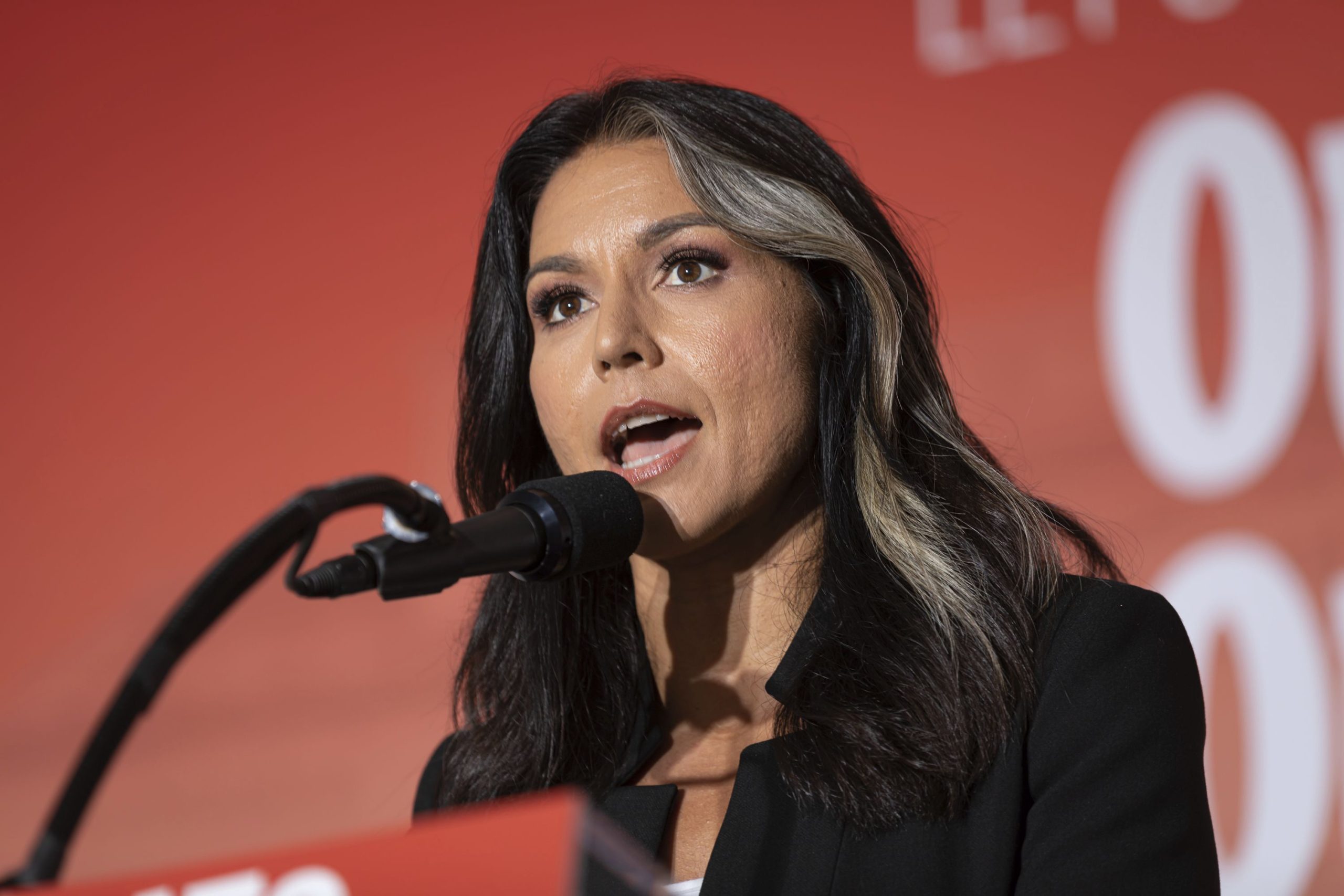NOTE: VIDEO AT THE END OF THE ARTICLE.
In a move that has stirred significant controversy, Director of National Intelligence (DNI) Tulsi Gabbard declassified two internal intelligence reports originally compiled during the Biden administration. These documents reveal that key federal agencies, including the FBI, Department of Homeland Security (DHS), and the National Counterterrorism Center (NCTC), labeled certain Americans who expressed dissenting views on issues such as COVID-19 mandates, immigration policies, and the 2020 presidential election as potential “Domestic Violent Extremists” (DVEs). The revelation has reignited intense debate over government surveillance, civil liberties, and the politicization of intelligence.
The first report, a 2021 intelligence bulletin titled “DVEs and Foreign Analogues May React Violently to COVID-19 Mitigation Mandates,” detailed concerns that individuals opposing government-imposed COVID-19 mitigation measures—such as mask mandates and vaccine requirements—could pose a domestic security threat. The bulletin specifically flagged those who expressed skepticism about vaccine safety, especially regarding children, or asserted that such mandates violated civil liberties. It suggested these views could be indicators of extremist behavior warranting monitoring by federal law enforcement.
The second document expanded the scope of the surveillance, including individuals who opposed the Biden administration’s immigration policies and those who questioned the legitimacy of the 2020 presidential election results. This broader categorization effectively labeled a significant segment of the American public holding dissenting political opinions as potential violent threats. This categorization enabled agencies like the FBI to begin assessments that could escalate to formal investigations.
DNI Gabbard publicly shared the documents with the stated intention of exposing what she described as the “weaponization of intelligence” against everyday Americans. She argued that using national security tools to target political opposition threatens the constitutional rights to free speech and peaceful dissent. Gabbard emphasized that dissenting opinions—especially on policy issues—are a cornerstone of democratic discourse, not grounds for government surveillance or intimidation.
These revelations have sparked widespread concern among civil liberties advocates, politicians, and citizens alike. Critics contend that labeling citizens who disagree with government policies as domestic extremists constitutes an overreach of federal authority and risks chilling legitimate political expression. Many argue the intelligence community’s approach during this period blurred the line between genuine threats and protected political speech.
Supporters of the intelligence assessments, however, argue the reports were intended to help law enforcement identify potential security risks in an increasingly polarized society. They claim that the rise of violent incidents linked to extremist groups justified the scrutiny, regardless of political beliefs. Still, the disclosure has fueled calls for greater transparency and oversight regarding how intelligence agencies define and monitor domestic threats.
The Biden administration has not publicly commented on the declassified reports. Meanwhile, ongoing discussions around this issue highlight the delicate balance between ensuring national security and preserving civil liberties. The release of these documents serves as a stark reminder of the challenges democracies face in navigating security concerns without undermining fundamental freedoms.
As the debate continues, it remains crucial to examine how intelligence tools are used and to demand accountability when government agencies risk infringing on constitutional rights. Tulsi Gabbard’s decision to declassify and publicize these reports has certainly propelled this important conversation into the national spotlight, raising questions about the appropriate limits of surveillance in a free society.
PLAY:

Sarah Mitchell is a bestselling novelist recognized for her insightful and emotionally resonant stories that explore the complexities of human relationships. Originally from Denver, Colorado, Sarah grew up in a family of teachers who nurtured her curiosity and love for storytelling. She studied psychology at Stanford University, where she became fascinated by the intricacies of human behavior—an interest that would later shape her writing career. Sarah’s novels are praised for their nuanced characters, intricate plots, and ability to capture the subtle tensions that define love, friendship, and family ties. Her breakthrough novel, The Spaces Between Us, became an instant bestseller, lauded for its honest portrayal of strained family relationships and the fragile bonds that hold people together. Since then, she has published several works that continue to captivate audiences around the world. Outside of her writing career, Sarah is passionate about mental health advocacy and often partners with organizations to promote awareness and support for those struggling with emotional well-being. Her personal life is quieter—she enjoys hiking in the Colorado mountains, practicing yoga, and spending time with close friends. With each new book, Sarah Mitchell cements her reputation as a writer who illuminates the beauty and struggles of human connection.









